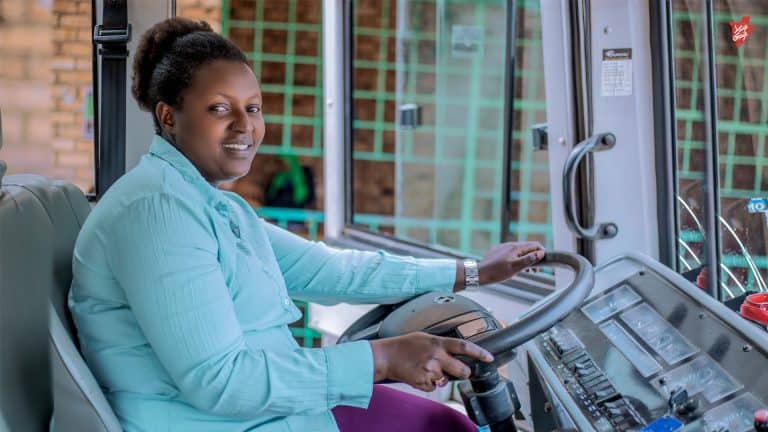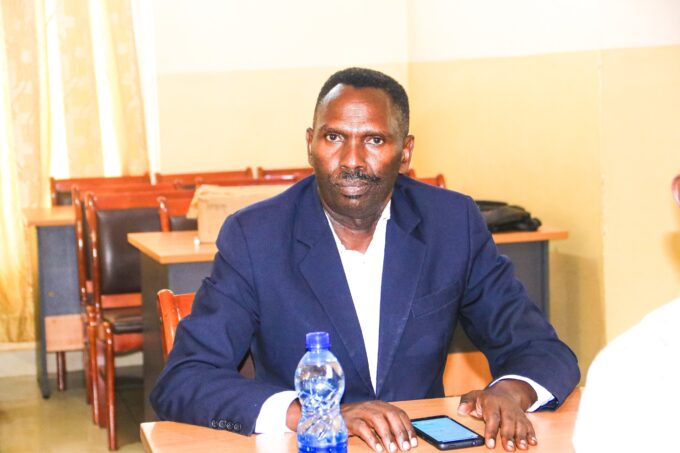In a country grappling with a deepening economic crisis and soaring unemployment, more and more Burundian women are venturing into jobs once considered the exclusive domain of men.
Across the country, from city taxi ranks to university campuses, women are rewriting gender norms as they take up roles traditionally dominated by men. Whether behind the wheel of a taxi, riding a motorbike, or guarding offices in security uniforms, more and more women are finding dignity and survival in work that was once off-limits.
Claudette Nshimirimana, a 42-year-old mother of four, has been a professional driver since 2015. After the death of her husband, she decided to take control of her family’s future by entering the transportation industry — a field previously dominated by men.
“I had to find a way to keep my family afloat,” she recalls. “So I got my driver’s license and started working. Back then, there were very few women in this line of work.”
Claudette now drives passengers and goods between the COTEBU parking area in Burundi’s economic hub Bujumbura and Bubanza in her Hiace minibus. She proudly lists the range of vehicles she can operate: Hiace — small buses commonly used for passenger transport, Coaster — larger buses designed for many passengers, and even heavy-duty trucks like the HOWO, typically used for transporting goods
“Driving feels natural to me now,” she says. “I’ve overcome the early challenges of being a woman in a male-dominated profession.” Today, she owns her own transport vehicle and encourages other women to break through societal limitations.
“There’s no such thing as a man’s job anymore,” she insists. “In fact, many women are now doing these jobs even better than men.”
Claudine Nimbona, another trailblazer in the transportation sector, has spent over eight years behind the wheel of a taxi. She began with a motorcycle taxi service in Gatumba and remembers the skepticism she faced.
“Back then, people couldn’t believe a woman could ride a motorcycle,” she says, smiling. “But now, I’m not the only one—other women have followed in my footsteps.”
Claudine now operates out of a parking station in Bwiza, a neighborhood in Bujumbura. Although she hasn’t yet been able to afford her own taxi, she remains hopeful despite occasional fuel shortages that disrupt her business.
Women are also breaking new ground in the security industry. Annick Akimana, a 21-year-old university student, works as a security guard for PSG, a private security firm. Her job helps her cover some of her expenses while pursuing her studies at Université Sagesse d’Afrique in Bujumbura.
“There are no more jobs just for men,” she says confidently, dressed in her uniform outside her duty post. “We also need to earn a living.”
Annick works during the day and attends university in the evenings. She believes today’s young women are more determined and self-reliant than ever before.
“In the past, girls lacked confidence. But that’s no longer true,” she says.
Women’s rights organizations have welcomed this shift. Octavie Ntakirutimana, legal representative of the Association of Responsible Widows, attributes this progress to the rising cost of living that has made it nearly impossible for women to stay on the sidelines.
“It used to seem like only men could do certain jobs,” she says. “But now, even husbands find it difficult to accept a wife who just stays home without contributing.”
According to her, if a man can be a driver or a construction worker, there’s no reason a woman can’t do the same.
“To women still hesitant, I say: follow the example of those who’ve already paved the way,” Ntakirutimana urges.








Leave a comment